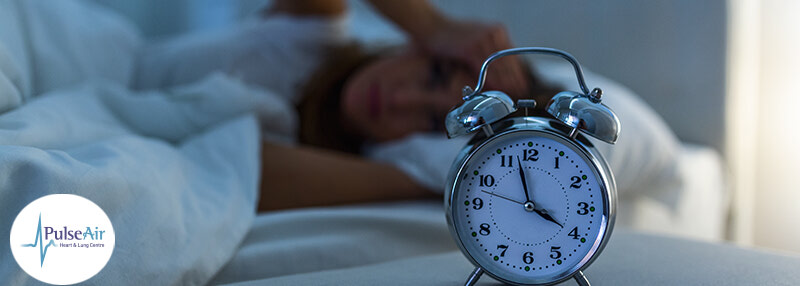As the witching hour approaches, it's not just ghosts and goblins that should give you a fright. For millions of people, the real horror is the disruption of their sleep patterns due to sleep apnea. This common sleep disorder can turn your nights into a living nightmare, affecting not only your sleep but also your overall health. So, let’s delve into the spooky world of sleep apnea, exploring its causes, symptoms, diagnosis, treatment, and how PulseAir's home sleep testing and PAP therapy can help you get a good night's sleep.
What is Sleep Apnea?
Sleep apnea is a sleep disorder characterized by repeated episodes of shallow or paused breathing during sleep. There are three main types of sleep apnea:
- Obstructive Sleep Apnea (OSA): The most common type, caused by a blockage of the airway, usually due to excess tissue or a narrow airway.
- Central Sleep Apnea (CSA): Caused by the brain's failure to send signals to breathe.
- Mixed Sleep Apnea: A combination of OSA and CSA.
The Symptoms of Sleep Apnea
Common symptoms of sleep apnea include:
- Loud snoring: Snoring that is loud enough to disturb others.
- Pauses in breathing: Witnessed by a bed partner or family member.
- Gasping or choking: Waking up with a start, feeling like you're choking.
- Morning headaches: Waking up with headaches, possibly due to oxygen deprivation.
- Dry mouth: Waking up with a dry mouth, possibly due to mouth breathing.
The Haunting Effects of Sleep Apnea
Sleep apnea can disrupt your sleep patterns, leading to:
- Fatigue and exhaustion: Waking up feeling unrefreshed and tired, affecting your daily activities.
- Memory and concentration problems: Impaired cognitive function due to lack of quality sleep.
- Mood disorders: Increased risk of depression, anxiety, and irritability.
- Cardiovascular problems: High blood pressure, heart disease, and stroke.
- Weight gain and metabolic issues: Insulin resistance, type 2 diabetes, and weight gain.
The Importance of Diagnosis and Treatment
Diagnosing sleep apnea is crucial to prevent long-term health consequences. A diagnosis typically involves:
- Home Sleep Testing (HST): A convenient, non-invasive test that records your sleep patterns and breathing.
- Polysomnography (PSG): An overnight sleep study that monitors your sleep patterns, breathing, and brain activity.
Treatment options include:
- Positive Airway Pressure (PAP) therapy: A device that delivers pressurized air to keep your airway open.
- Oral appliances: Custom-made mouthpieces that advance your lower jaw to keep your airway open.
- Lifestyle changes: Weight loss, exercise, and avoiding alcohol and sedatives.
Ignoring sleep apnea can lead to a host of “frightening” health issues including increased risk of blood pressure, heart attacks, and strokes. It can also increase your likelihood of developing type 2 diabetes and can lead to depression and anxiety.
How PAP Therapy Works
- Pressurized Air: PAP therapy delivers a continuous stream of pressurized air through a mask that you wear over your nose, or both your nose and mouth, while you sleep.
- Airway Support: The pressurized air helps keep your airways open, preventing them from collapsing and thus reducing or eliminating episodes of apnea (pauses in breathing) during sleep.
Types of PAP Devices
- CPAP (Continuous Positive Airway Pressure): Delivers a constant, steady pressure of air throughout the night.
- BiPAP (Bilevel Positive Airway Pressure): Provides two levels of pressure – a higher pressure when you inhale and a lower pressure when you exhale.
- APAP (Automatic Positive Airway Pressure): Automatically adjusts the pressure based on your breathing patterns throughout the night.
PulseAir's Home Sleep Testing and PAP Therapy: A Breath of Fresh Air
At PulseAir Heart & Lung Centre, we're committed to helping you get a good night's sleep. Our home sleep testing (HST) kits allow you to test for sleep apnea in the comfort of your own home. If diagnosed with sleep apnea, our PAP therapy devices can help you breathe easier and sleep better.
Don't Let Sleep Apnea Haunt Your Nights
Take control of your sleep and your health by seeking diagnosis and treatment. With PulseAir's home sleep testing and PAP therapy, you can say goodbye to spooky sleep and hello to a restful night's sleep. Read more about our services today.


